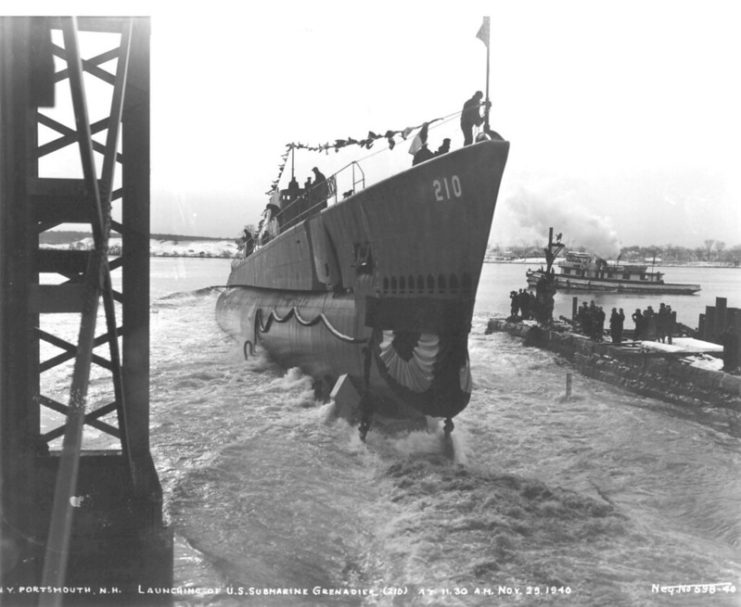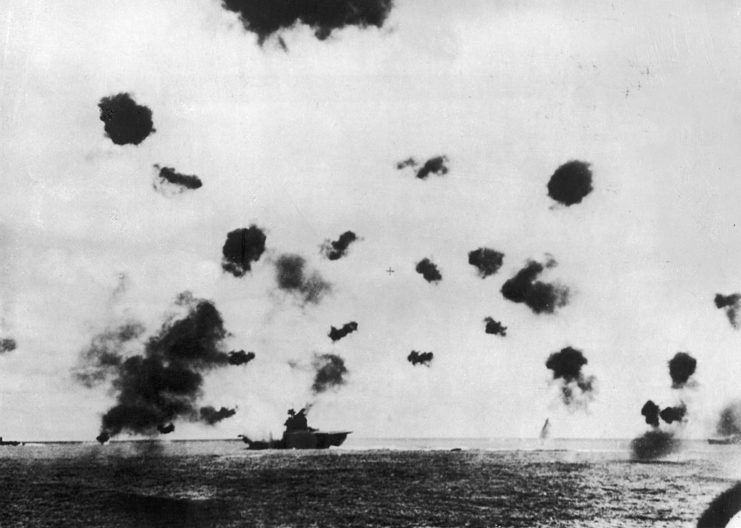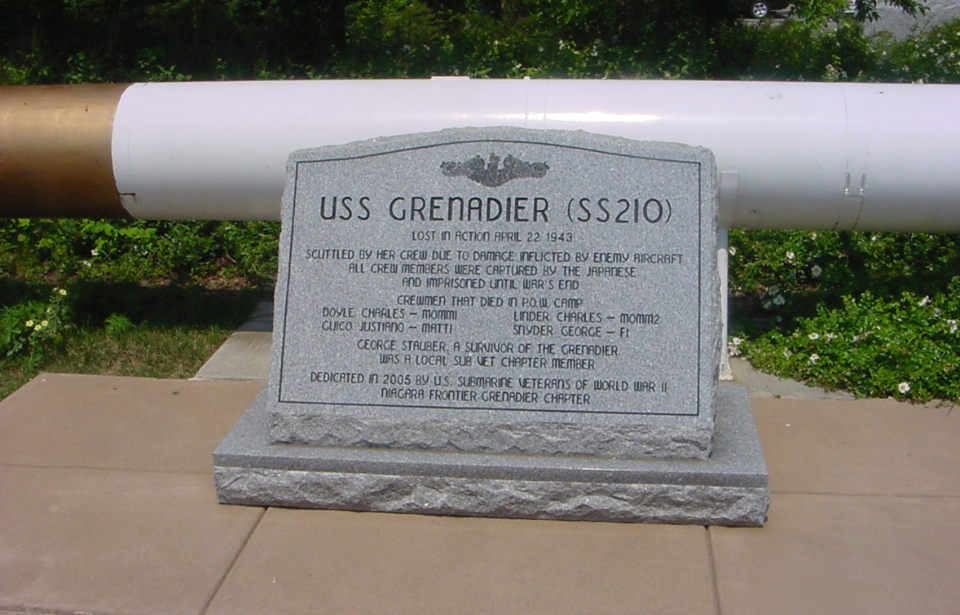For over 70 years, nobody knew the fate of the USS Grenadier (SS-210). Struck by a Japanese aircraft, the submarine sank to the bottom of the Pacific Ocean, off the coast of Thailand, in April 1943. As her 76-men crew attempted to escape, several enemy vessels surrounded the area – they knew then their fates were sealed.
The USS Grenadier delivered devastating blows against Japan
The USS Grenadier was a Tambor-class submarine that was laid down at Portsmouth Navy Yard in April 1940. The vessel was commissioned just over a year later, with Lt. Cmdr. Allen R. Joyce in command.
Prior to America’s entry into World War II, Grenadier participated in the search for the USS O-9 (SS-70), which tragically never resurfaced after a deep dive test. After some time spent in the Caribbean Sea, she returned to port. Just over a month later, the Japanese attack on Pearl Harbor plunged the US into war and Grenadier was on her way to the Pacific to join the Submarine Fleet.

Grenadier‘s first patrol off the coast of Japan was unsuccessful, but she made up for it during her second. On May 8, 1942, the submarine torpedoed and sank the Japanese transport ship Taiyō Maru, which was en route to the East Indies. The sinking was one of Grenadier‘s most impressive victories. Onboard the transport were a slew of high-profile officials, including scientists and engineers, making the loss especially devastating for Japan.
On May 25, Grenadier sailed to Midway Island as part of a submarine patrol line, where she played a pivotal role in one of the most successful marine battles of the war. The Battle of Midway resulted in the loss of four Japanese aircraft carriers, along with hundreds of aircraft, making it yet another devastating blow to the enemy.
The tragic fate of the USS Grenadier
The USS Grenadier departed Australia on March 20, 1943 for the Strait of Malacca, in what would be her last patrol. Sailing the coast of Thailand, the submarine was spotted by Japanese aircraft as she surfaced around dawn. She immediately dived 130 feet below the water, her crew thinking they should be safe at that depth – they were wrong.
The bomb struck the submarine, cutting off power and starting a fire onboard the vessel. The crew attempted to make repairs, and after 13 hours managed to resurface to inspect the damage, noting Grenadier‘s propulsion system was broken beyond repair. The decision was then made to bring the vessel closer to shore, so she could be scuttled and her crew able to escape into the nearby jungle.

As dawn broke, they could see two Japanese ships headed toward them. Before abandoning the vessel, Grenadier‘s crew burned all confidential documents. They were once again spotted by a Japanese aircraft, but continued to fight back with machine guns, securing a hit. They then abandoned ship and watched as the submarine sank below the water to her final resting place.
Meanwhile, the Japanese ships loomed ever closer. One picked up the eight officers and 68 crewmen, who were taken prisoner and made to suffer horrific torture. Despite their treatment, they refused to reveal any information. Imprisoned and subjected to inhumane conditions, all but four of Grenadier‘s crew survived their two years as Japanese prisoners of war (POWs).
Discovery of the wreck
Like many of the 52 submarines lost during the Second World War, the final resting place of the USS Grenadier was unknown for decades. In 2020, however, it was announced the vessel had been discovered, thanks to the efforts of a four-man dive team, which included Ben Reymenants. He’d shot into the spotlight in 2018 as one of the rescuers during the crisis involving the Thai junior association soccer team who’d become stranded in a cave for several days.
More from us: USS Jacob Jones (DD-61) Found After a Century; First US Destroyer to Be Sunk By An Enemy Vessel
Reymenants asked locals if they’d encountered any spots where their fishing nets snagged the ocean floor below. Once a couple of possible targets were identified, sonar technology was used to locate the submarine. The team of divers were able to see the wreck for the first time in over seven decades, sitting upright some 270 feet below the water in the Strait of Malacca.
Upon discovering Grenadier, the team sent their findings to the Naval History and Heritage Command, which placed the wreck under the protection of the Sunken Military Craft Act.
